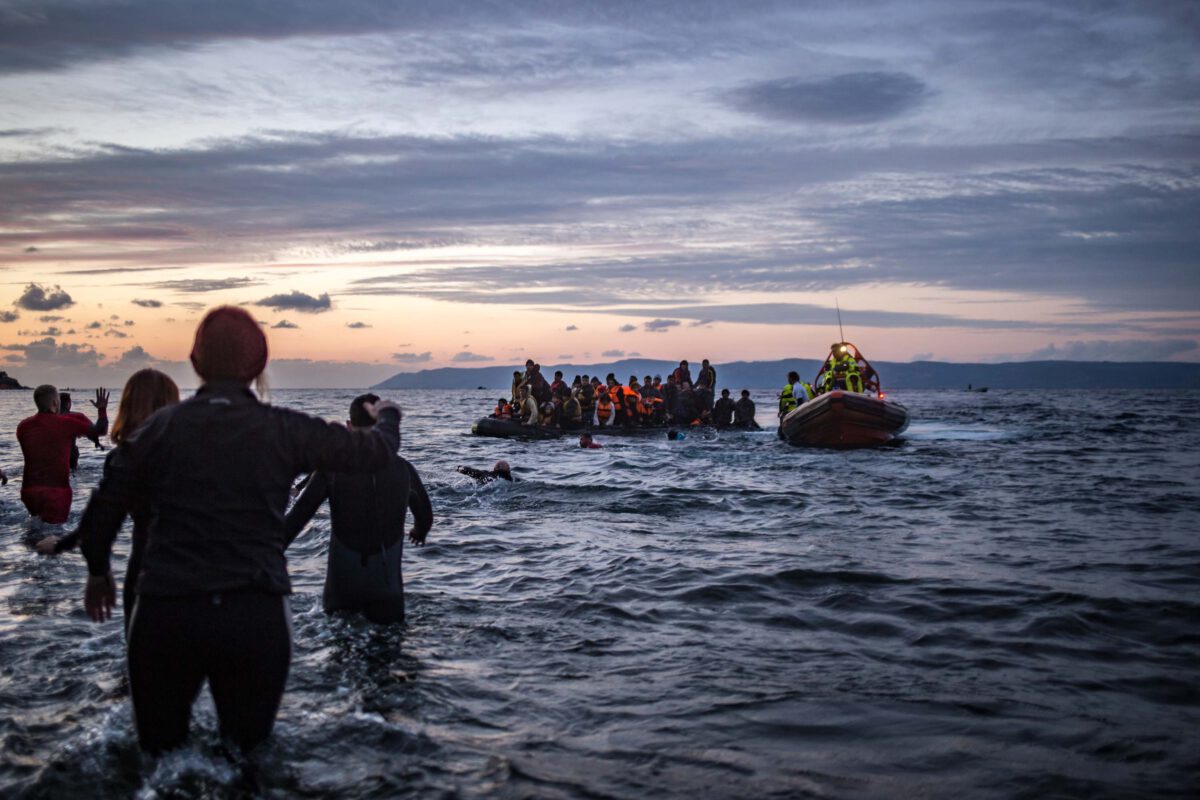Devastating Frontex report: Commission of inquiry into sea rescue must come

Following the Pylos shipwreck with over 600 fatalities off the Greek coast, the the European Ombudswoman Emily O’Reilly opened an investigation. Due to its mandate, it concentrated on the role of Frontex.
The report it has now presented shows that Frontex is not fulfilling its own European and human rights requirements. This is due, for example, to the fact that Frontex is too dependent on the cooperation of the member states in sea rescue cases, which do not always rescue people in distress at sea.
The investigation identifies systemic problems and a lack of independent oversight of the operations. O’Reilly appeals to the EU Parliament, Council and Commission to set up a public commission of inquiry to investigate the causes of the Mediterranean deaths and prevent them in the future.
The Ombudsman's press release can be found here.
Ombudsman publishes devastating report – "Commission of inquiry into sea rescue must come"
The report is alarming and the Ombudsman's verdict is devastating. Frontex is not fulfilling its basic legal obligations. For example, Frontex apparently found sea rescue cases, but then failed to inform the ships in the vicinity. This was also the case in the Pylos shipwreck, in which over 600 people died when the fishing trawler Adriana sank, even though Frontex had been aware of the distress at sea for many hours. Such cases must not be repeated.
Frontex offered help with the Adriana air surveillance, but received no response from Greece. The investigation identifies systematic problems because maritime emergencies are repeatedly ignored, resulting in many avoidable deaths.
However, eight months after the disaster, no steps have been taken to prevent such a catastrophe from happening again. There also seems to be no interest on the part of the Greek authorities in carrying out serious rule of law investigations. Our external borders must no longer be a lawless area where people can be allowed to drown with impunity.
That is why I support the call by European Ombudsman Emily O’Reilly to set up a public commission of inquiry to investigate the thousands of deaths in the Mediterranean and prevent them in future.
Background to the investigation
On June 14, 2023, the overcrowded fishing boat Adriana sank off the coast of Pylos, Greece, drowning over 600 people. The EU Commissioner for Home Affairs, Ylva Johansson, described the incident as one of the worst shipwrecks of this century and called for a thorough investigation.
The European Ombudsman Emily O’Reilly has launched an investigation. It focuses on the role of Frontex and its interaction with national authorities in maritime emergencies. The investigation found that Frontex‘ sea rescue capabilities are heavily dependent on Member States and their sea rescue operations. There is often a confusion of responsibilities that makes it easier to shirk responsibility for rescue operations and allow people to drown.
The Ombudsman proposed that the Commission, the Council and the Parliament set up an independent commission of inquiry to assess the situation and protect fundamental rights in maritime emergencies.
The Adriana accident is emblematic of the failure to take appropriate rescue measures, because here too, ships were not alerted for rescue despite clear signs of an emergency at sea.
Even though the case is still being legally investigated, it is clear that more than 600 people could still be alive if appropriate sea rescue measures were taken.
Here is an excerpt from the recommendations of the EU Ombudsman O'Reilly:
More independent operational decisions by Frontex: Frontex is too closely tied to the member states when it comes to operational decisions. As a result, Frontex lacks the ability to fulfill its fundamental rights obligations. A review of operational plans and procedures may be needed to ensure that the agency can better respond to maritime emergencies, even if national authorities do not give specific instructions to rescue or report rescue cases.
Response to maritime emergencies: Frontex needs to revise its operational protocols for responding to maritime emergencies, in particular with regard to the issuing of mayday relays, i.e. the reporting of maritime emergencies to surrounding vessels. The Agency should consider whether its criteria for assessing maritime emergencies and deciding to issue mayday relays are sufficient to take into account the particular circumstances of boats and prevent death at sea.
Handling of information from third parties: Frontex should improve its practices for assessing and integrating information provided by non-governmental organizations and other unofficial sources. In particular, reported threats to children should be a top priority.
Relationship with national authorities: The investigation underlines the need for Frontex to reconsider its relations with national authorities, especially in cases where there are doubts about a Member State's compliance with fundamental rights. Frontex should be prepared to cease, withdraw or suspend its activities with a Member State if the threshold for serious fundamental rights violations has been reached. Explicit reference is made here to Greece.
Improve the legal framework for search and rescue operations: There is a need for a clear EU legal framework for search and rescue operations that clearly defines the roles and responsibilities of Frontex and the Member States and enables the agency to fulfill its fundamental rights obligations more effectively. The law of the sea was created at a time when it was unimaginable that states would refuse to rescue people in distress at sea. As these times have unfortunately changed, the legal framework should be revised at European level.
These proposals aim to improve Frontex‘ operations to save lives and ensure that fundamental and human rights obligations are respected in the context of search and rescue operations in the future.